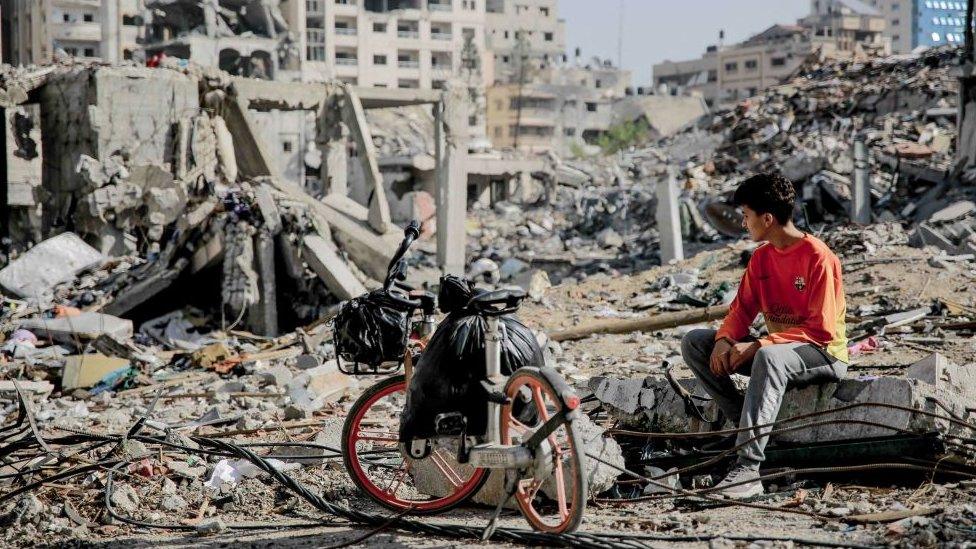Israel-Gaza war: Man on hunger strike hospitalised calling for ceasefire
- Published
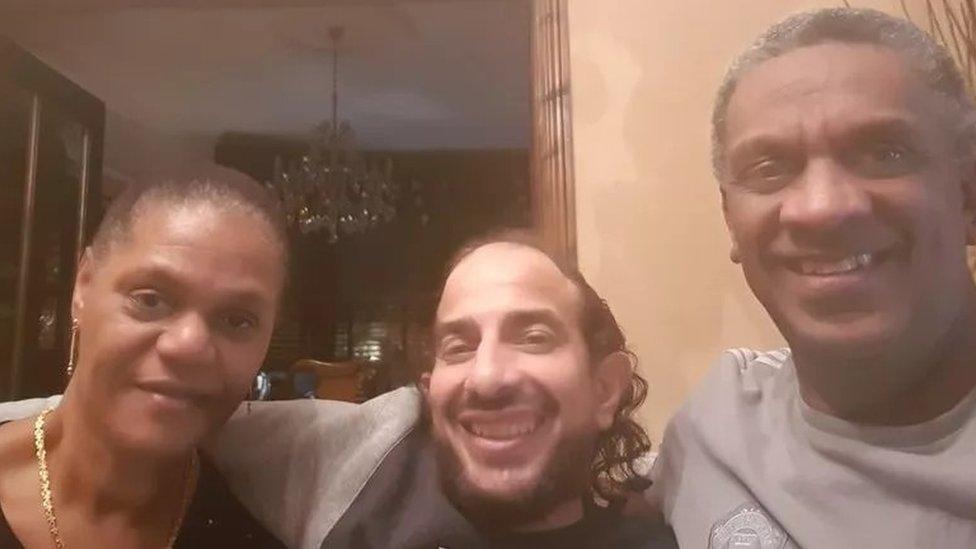
Wael Arafat, centre, with his mother Patricia David-Thomas and father David Thomas
A man originally from Gaza has been hospitalised after being on hunger strike for nearly two months over the Israel-Gaza war.
Wael Arafat, 28, moved from Deir Al Balah to Bristol when he was young and is calling for a ceasefire.
His mother, Patricia Davis-Thomas, said he is "very unwell" and that he has 17 family members who have been killed.
She explained that seven days after he started the hunger strike, they had to call for an ambulance.
Israel says that for the first time since the fighting began in October, aid has entered Gaza through the Kerem Shalom crossing.
Until now there have only been limited deliveries through the Rafah Crossing with Egypt.
An increasing number of countries are calling for a ceasefire. in the Israel-Gaza war.
Mr Arafat from Bristol has been refusing food at the Royal United Hospital in Bath. Speaking to BBC Arabic, Mr Arafat said: "I probably have a week or two before I die.
"I want the world to do something and not for me, but I want the world to do something for the people of Gaza, for the children, the elderly and the youth."
'He's been traumatised'
Ms Davis-Thomas said: "He came to this country to be safe.
"He's been traumatised, but he's always had a very strong link to Palestine, even though he left there when he was very young.
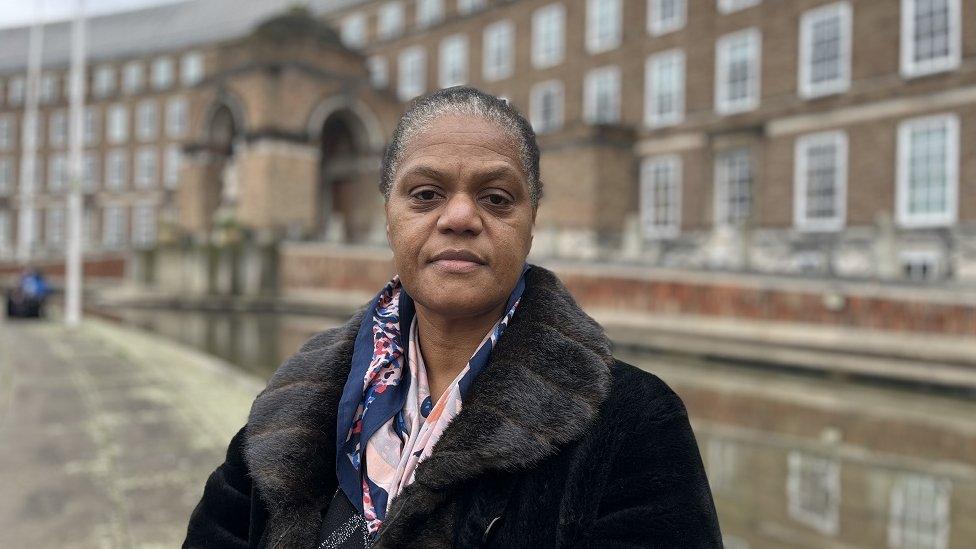
Wael Arafat became a part of Patricia Davis-Thomas's family when he was 14
"He expresses his distress around the children that are being harmed. He remembers himself as a child living in Palestine, under occupation."
Mr Arafat told the BBC he did not want to stop the hunger strike until, "they hear us and know that we are not animals, we are humans and when I see the ceasefire in Gaza."
Ms Davis-Thomas added: "I took in a young lad of 14. I brought him up in the way he should have been brought up, in the way that his family would have wanted him to be brought up."
"So I learnt about his culture. I knew nothing about Palestine before he came to me. I helped him in his education. I got him to this point."
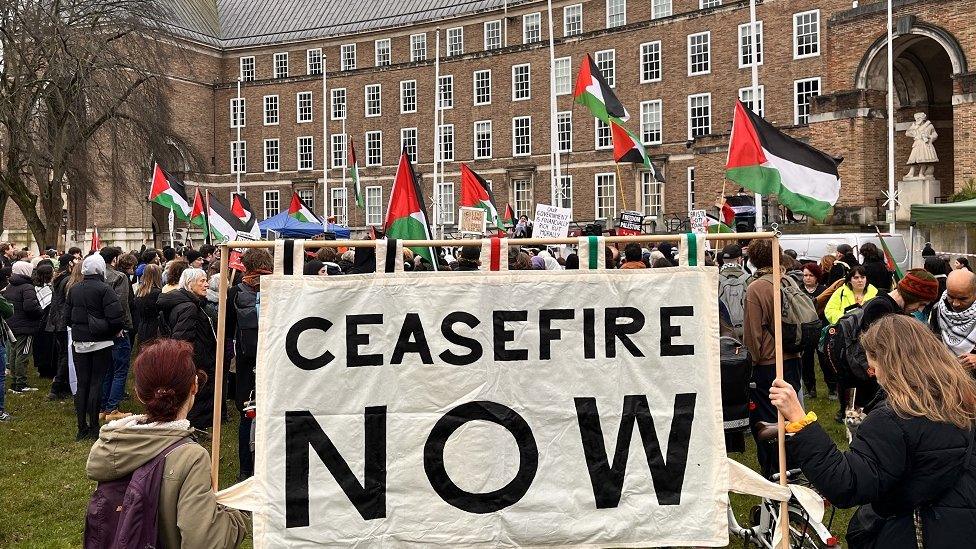
There have been regular protests in Bristol calling for a ceasefire
"Now I just feel I'm going to lose my son and nobody has a right to die like that. I'm trying to save my son here."
She said she wanted people to think about those in Palestine running for their and their children's lives.
Ms David-Thomas said he is "critical" in hospital and has managed to encourage him to have a little fluid.
She added: "I tell him every day in hospital - you have a right to protest. We all have a right to protest. But you don't have to take it to the point where you have to die."
"He wants to be heard, he doesn't want to die. He's expressed that to the doctors and they are trying to do their best by him.
"But if he doesn't take fluids, if he isn't encouraged to start to eat, then he will die."
Israeli Prime Minister Benjamin Netanyahu has said the Israeli government is still trying to complete the recovery of all the hostages held in Gaza, saying military pressure on Hamas was needed to secure their release.
Mr Netanyahu has indicated that talks are happening, and there are reports which suggest both Egypt and Qatar are involved in the discussions.
But Hamas has said there will be no negotiations to release hostages "unless the aggression against our people stops once and for all".

Follow BBC West on Facebook, external, X, external and Instagram, external. Send your story ideas to: bristol@bbc.co.uk , external
Related topics
- Published16 December 2023
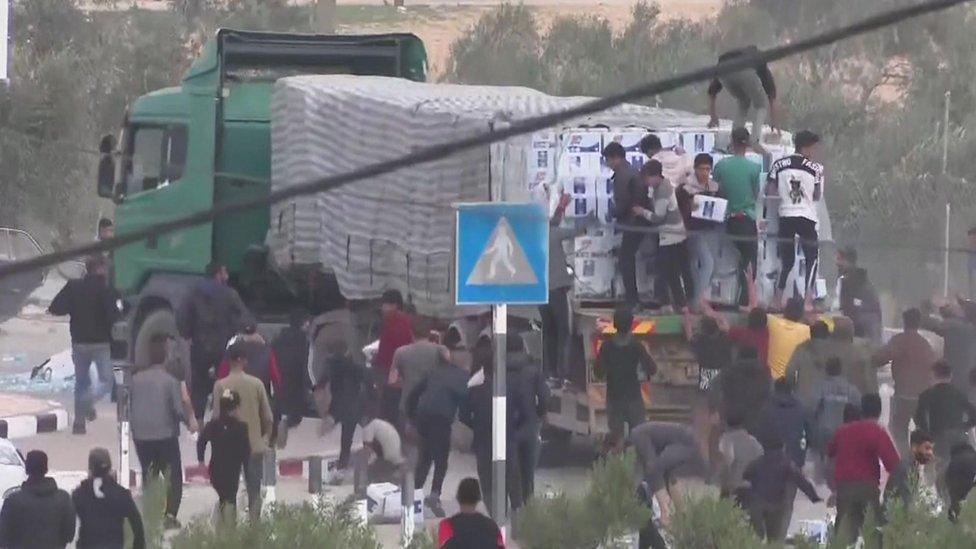
- Published14 December 2023
